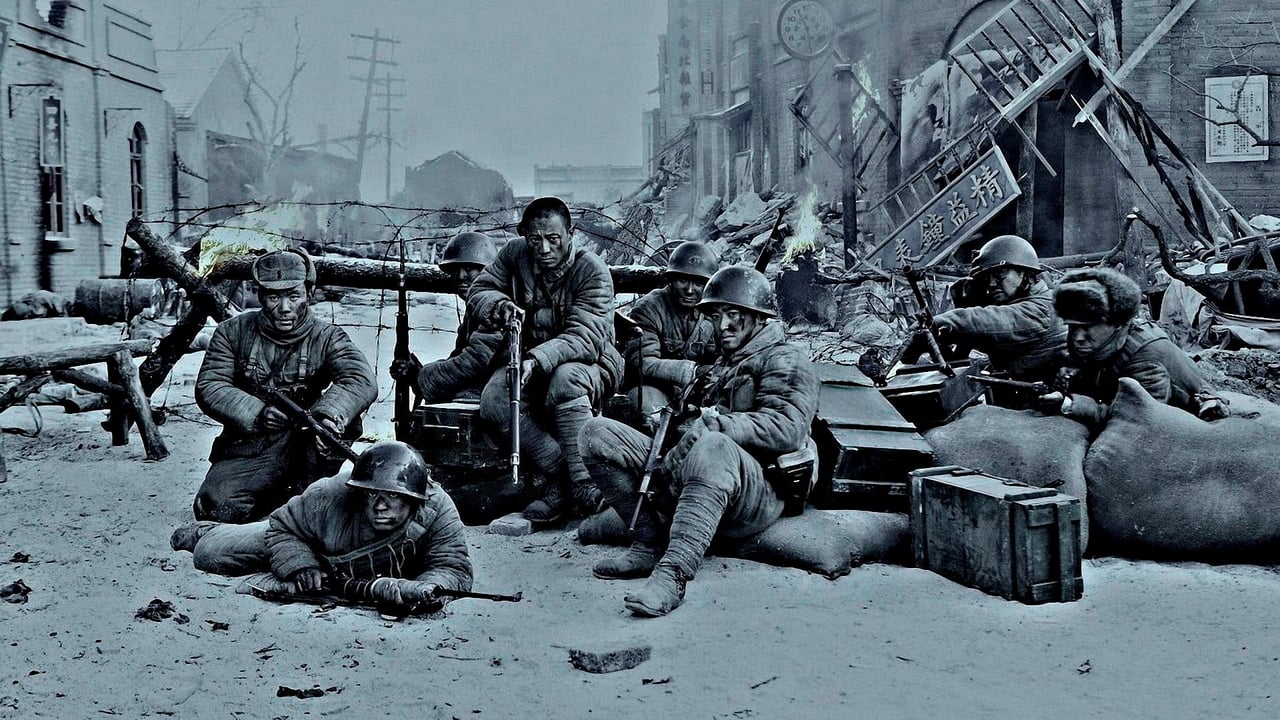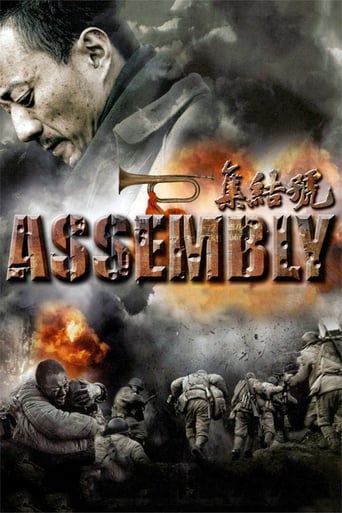

A waste of 90 minutes of my life
... View MoreA story that's too fascinating to pass by...
... View MoreOne of those movie experiences that is so good it makes you realize you've been grading everything else on a curve.
... View MoreExactly the movie you think it is, but not the movie you want it to be.
... View MoreImpressive albeit shocking. The horrors of war are so well depicted in this epic war film - quite frankly one of the best war films I've seen. The fighting scenes are brutal, merciless and disturbing. Very realistic with great photography and visuals. I enjoyed the post-war story just as much. An incredible story of loyalty and determination. So sad.
... View MoreI have heard a lot of good things about this movie, so I decided to watch it.Well, it wasn't as good as I expected at all. Essentially, it is just another Chinese communist propaganda. No matter how big the mistake the Party made, in the end, the Chinese communist party always does the right thing for its people. That is basically what every mainland Chinese movie is all about. This is just another updated version with better picture quality and better sound effects.For mainland Chinese people, they got brainwashed by the Chinese communist party. Of course, they love this movie. It makes them feel so touched and "proud". There is nothing to be proud of, because the Chinese communist soldiers were killing the Chinese nationalist soldiers who were also Chinese. At that time, the Chinese communist soldiers would be labeled at anti-government terrorists according to today's standard. If the Chinese communist party didn't win the civil war, China might be a better country than it is today. And look at today's China, so many common people have so many things that they want to complain to the communist party, but some of them were even sent to the psychiatric hospitals.The first hour was way too long. It was a simple story, there is no need to show the audience one event for an entire hour. Some of the scenes remind of me "Saving private Ryan." Remember people, only good things about the Chinese communist party are allowed to be made movies. The bad things are not even allowed to be published anywhere inside of mainland China. Those oversea web sites are also blocked inside of mainland China. That is the reality.
... View Moreand the misery that comes to those who are caught up in it is brought to frightening reality on the big screen in this masterfully filmed effort by Feng Xiaogang. The story of a Chinese regiment fighting against the Nationalists in the brutal civil war manages to tug at almost every human emotion. The protagonist officer who leads his men in a savage last stand is perfectly portrayed. The scenes of warfare in this movie are very well done and manage to do so without demonizing the enemy as in so many war films. For those of you who know such things, and there are many, the range of weaponry used in this film spans the the entire history of modern warfare for the Chinese from the 1920's on through the war in Korea and adds greatly to the intense realism of the film. Watch for the scene in which the Captain sees what has become of the old helmets once used by the soldiers.The main character, Captain Gu Zidi, superbly played by Zhang Hanyu, cannot give up the memory of his lost men and never ceases in his struggle to have their memory honored. The portrayal of this struggle by this one man gives this film everything thing it needs for great drama. This work has a far stronger story than "Saving Private Ryan" and in modern cinema can only be rivaled by South Korea's "Tae Guk Gi". This is not only a great war film but is one of the very best films of any kind I have been privileged to see in recent years.
... View MoreIn 1948 during the Chinese Civil War a broken company of men is ordered to hold an old mine until the bugler plays assembly.After the war the captain of the men, the only survivor and the only one who said he did not hear the bugle call, tries to find their bodies and prove his men died as heroes.Profoundly moving story of the brotherhood created in war and the need to right an old wrong. Though not quite perfect, this is one of the best war films I've seen, period. Its power comes not from the battles, rather from the humanity of those that fight. This is a film about people and characters first and foremost and its what lifts this toward greatness. I have never seen a film where everyone, on both sides of the battle, are portrayed as human beings. There are no monsters, no stick figures, just people. Even the people in the mass of uniforms are people even if we only see them for an instant. This is a film about the people, and the individuals who fight in times of war. None of the main characters are clichés. Its not like Saving Private Ryan where everyone is a WW2 cliché, here we have people and even if we don't know everything about them we do know that they are individuals. This is a film about the human cost of war.Ultimately the film works because of Zhang Hanyu as Captain Gu Zidi. Here is a man who is racked with guilt for "killing" all of his men. He wants nothing better than to honor them, and when after being found in the carnage of that final battle he comes to realize that no one believes him, he is forced to not only fight on but also do everything he can to see that the memory of the brave brothers is kept alive. Zhang Hanyu breaks your heart as he tries to both join his men and prove to the world that what they did mattered. It is a portrait of quiet strength and occasional rage that makes you feel for him and for the men who fought with him. Its one of the best performances of the year.I know for some the first hour of relentless battle (its nasty) will make the more sedate second half something they will have trouble sitting through. I know some will wonder where the guns have gone, but at the same time this is not a story of battle but of people. The horrors of the first hour (filmed in the now standard shaky cam style) make the poignancy of Captain Zidi's quest all the more touching, since he wants to make his mens sacrifice and trip into hell worth something. You really have to be patient and go with the film and let the film reward you in its own way. I suspect that knowing the film shifts gears for the second half helps since you don't have expectations of a two hour battle. I know that my initial attempt at watching this film blind lead me to believe this was going to be wall to wall action, however a friend who borrowed my copy before I could finish it warned me of the tone change and I think it helped me a great deal when I finally watched it from start to finish.You really should see this film since it ultimately speaks to all people who send their sons and daughters off to war and why we need to remember them.9plus out of 10 And yes its a true story.
... View More